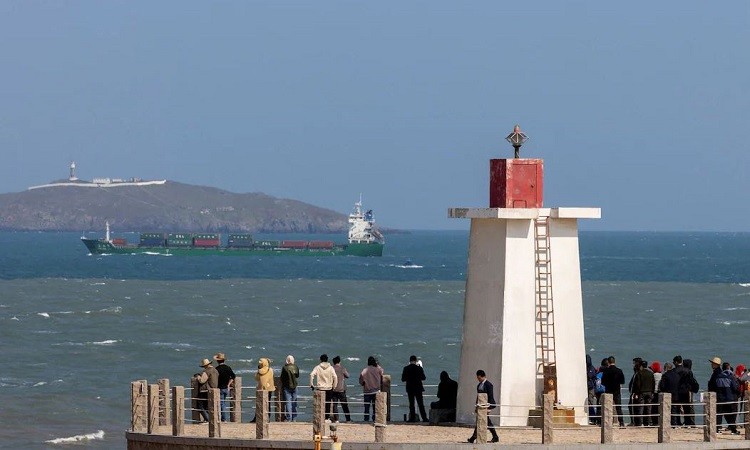
Taiwan spotted an unusual influx of Chinese weather balloons invading its airspace, coinciding with the lead-up to the country's crucial presidential elections. The Defense Ministry in Taipei reported four such instances on January 2, signifying a notable breach amid growing tensions between Taiwan and Beijing.
These four Chinese balloons followed a northeast trajectory from 8:27 a.m. to 6:41 p.m. on January 2, just a month after Taiwan began publicly sharing such information. Particularly noteworthy was that three of these balloons traversed the island, as stated by the ministry.
Preceding these incidents, another balloon was sighted over Taiwan on January 1, marking the first occurrence since the ministry began monitoring in December. According to official reports, an illustration from the ministry depicted three balloons moving northeast after appearing southwest of Ching-Chuan-Kang, near a military airbase in Taichung's western city.
Sources indicate that one of these balloons flew at the lowest altitude of 12,000 feet (3,658 meters) during its trajectory over the region.
Implications in the Political Arena as Elections Approach
With Taiwan gearing up for its presidential election on January 13, these airspace intrusions have heightened existing tensions between China and Taiwan. Beijing has been actively asserting its claim over Taiwan, escalating actions such as increased deployments of warplanes and naval vessels near the island. Experts refer to these tactics as "grey zone" strategies, aimed at intimidating Taiwan's military.
Xi Jinping's recent reiteration of China's determination for reunification, concerning Taiwan, emphasizes the significant impact the upcoming election will have on the geopolitical landscape in the region.
This recent incident mirrors a similar event from the past year when a Chinese balloon encroached into United States airspace, leading to strained relations between Beijing and Washington for months. The Joe Biden administration classified the aircraft as surveillance-oriented and took it down, while China maintained its stance, citing weather-related purposes.
Elevated Vigilance and Diplomatic Tensions
In response, Taiwan's Defense Ministry pledged to enhance surveillance and scrutiny of these intrusions. They committed to closely monitor and analyze the flight paths of these balloons to determine their intentions beyond weather-related activities. Precautionary measures are expected to be implemented in response to potential threats posed by such incursions.
China Names Dong Jun as New Defense Minister Amidst Leadership Transition